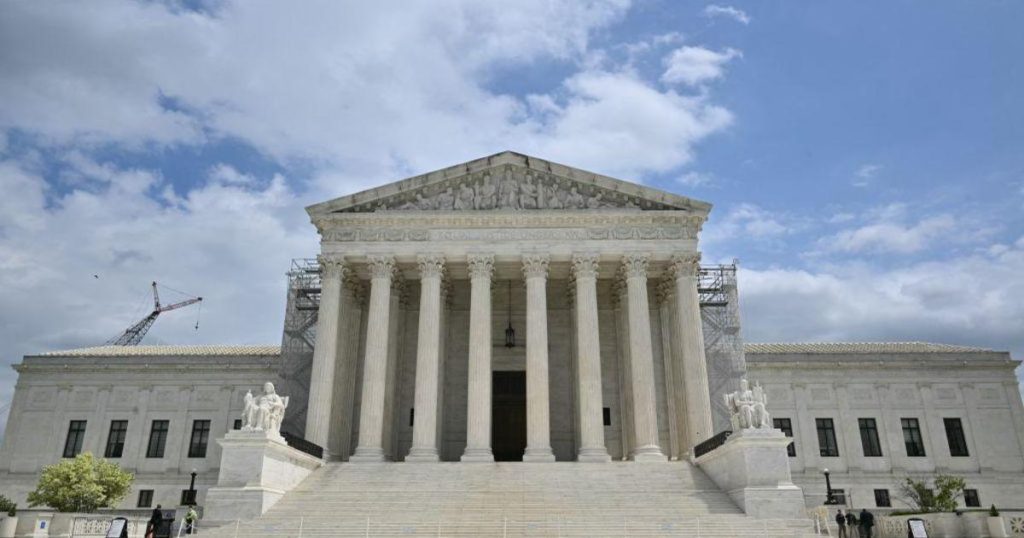The Supreme Court has given approval for Louisiana to use a congressional map for the 2024 elections that includes a second district with a majority of Black voters. This decision allows Black voters to elect their preferred candidates and overturns a ruling from a three-judge federal district court panel that had previously blocked the state from using the newly redrawn map. The court’s decision is seen as a victory for Democrats, who are likely to gain another seat in Louisiana under the redrafted congressional lines, marking the latest development in a legal battle over the state’s House district boundaries that began after the 2020 Census.
The initial map adopted by Republican state lawmakers in 2022 consisted of five majority-White and one majority-Black congressional districts, despite the state having a significant Black population. Following legal challenges under the Voting Rights Act, a new map with two majority-Black districts was crafted and adopted by the GOP-led legislature in January. While the new map sought to comply with Section 2 of the Voting Rights Act, it was later challenged by a group of voters who claimed it was a racial gerrymander in violation of the Equal Protection Clause of the 14th Amendment. The Supreme Court ultimately allowed Louisiana to move forward with the new congressional map as ordered by the lower court, giving voters another majority-Black district.
The new congressional redistricting plan aimed to protect certain Republican incumbents and was signed into law by Governor Jeff Landry in January. However, a group of voters challenged the map as a racial gerrymander, accusing the state of drawing districts predominantly based on race without regard for traditional redistricting criteria. The three-judge district court panel later blocked the latest GOP-drawn map from being used in any election after finding it to be an unconstitutional racial gerrymander. But supporters of the map, including Black voters and civil rights groups, argued that the map was meant to remedy a violation of the Voting Rights Act while pursuing political goals.
Louisiana officials sought emergency relief from the Supreme Court to allow the new map to be used for upcoming elections, citing conflicting court orders and the need for clarity in the redistricting process before the November congressional elections. However, a group of voters challenging the map accused the state of imposing a racial gerrymander and argued that the map was morally repugnant. They also criticized the state for manufacturing a deadline to have a congressional map in place, warning that using the newly drawn district lines could lead to voter confusion and disruption in the 2024 primary. The legal battle over Louisiana’s congressional map continues as the state prepares for the upcoming elections.


